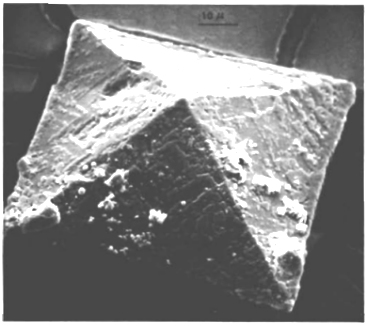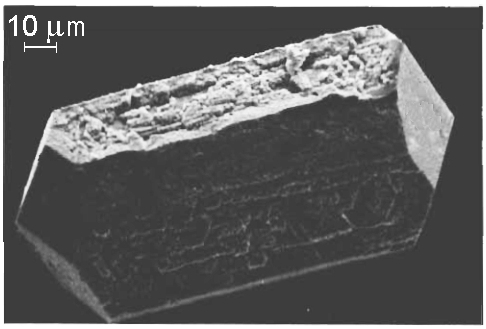
Scanning electron microscope image of calcium oxalate monohydrate from the kidney.
| Richard D. Lewis1, Heinz
A. Lowenstam2, George R.
Rossman2 1University of Southern California School of Medicine, Los Angeles, CA 2Divisionof Geological and Planetary Sciences California Institute of Technology, Pasadena, CA |
Crystals were present in the myocardium of a 48-year-old woman dying of uremia. The X-ray, infared, and microscopical studies identifying and characterizing calcium oxalate monohydarte (naurally occuring as the mineral whewellite) and calcium oxialate dihydrate (weddelite) in the kidney, heart, and thryoid are presented. Cirrhosis and pancreatic insufficiency are considered as of possible importance in the pathogenesis of disturbed oxalate metabolism. Oxalate nephrosis may have been the major factor in causing uremia.

Scanning electron microscope image of calcium oxalate monohydrate from
the kidney.
